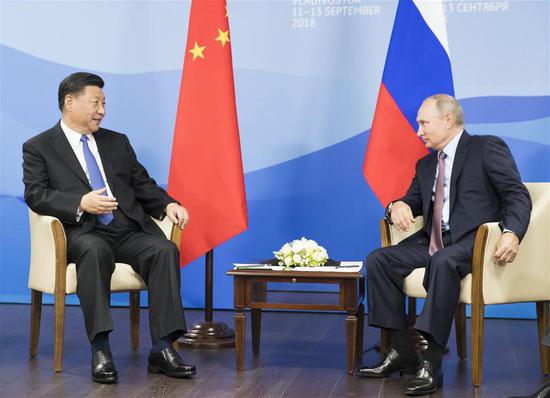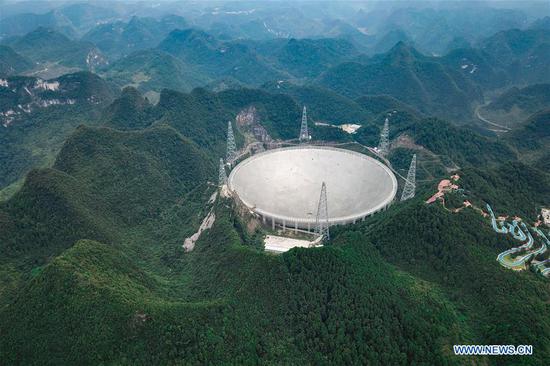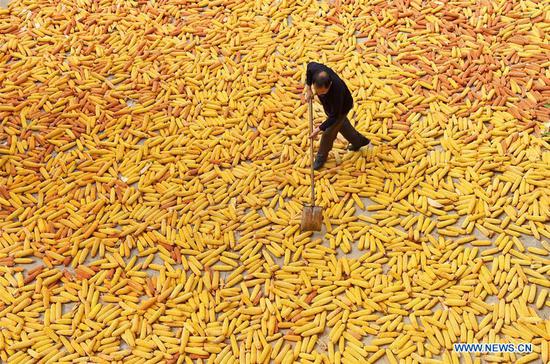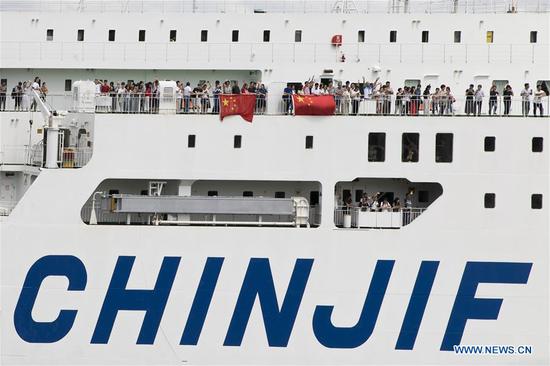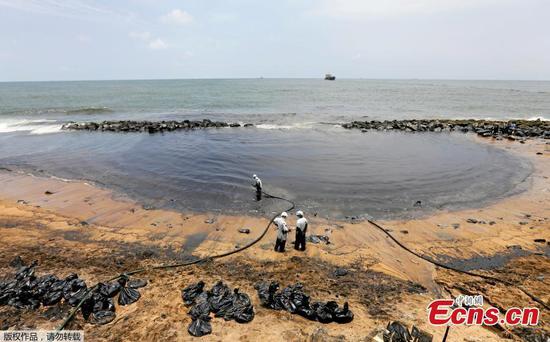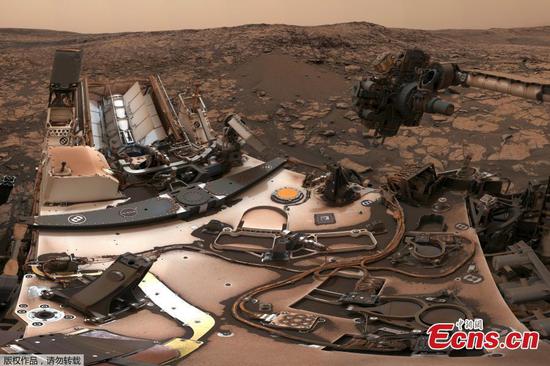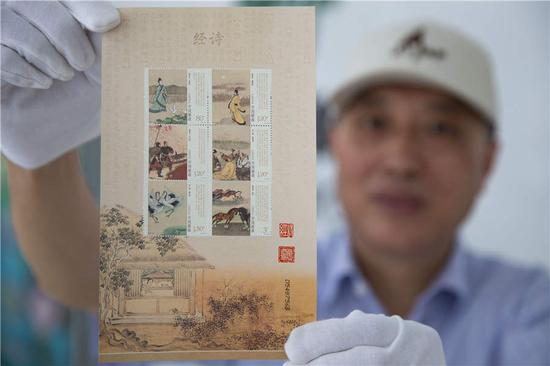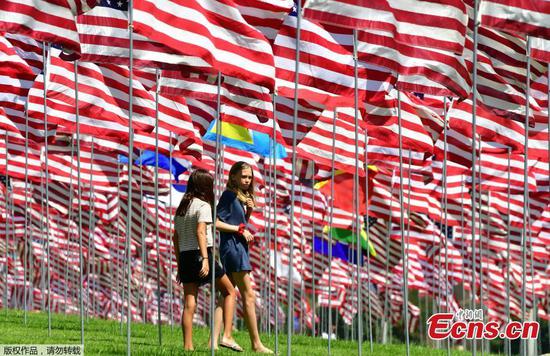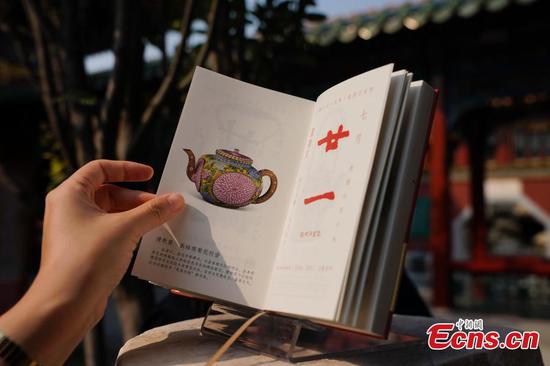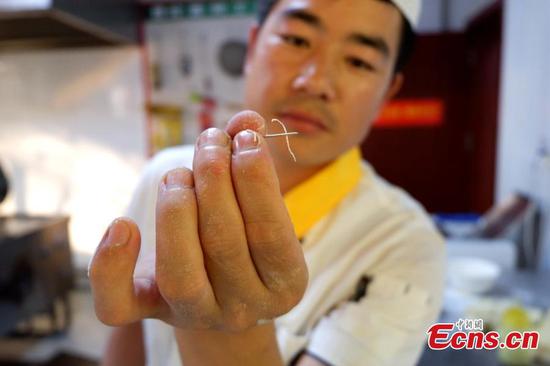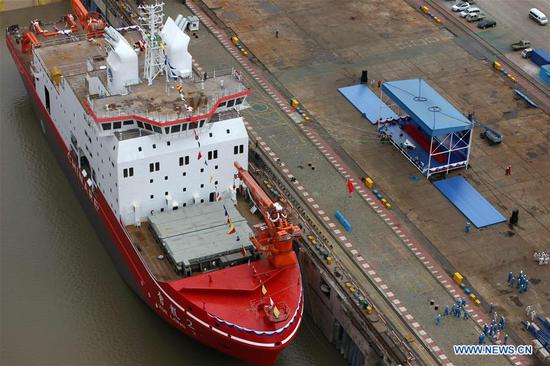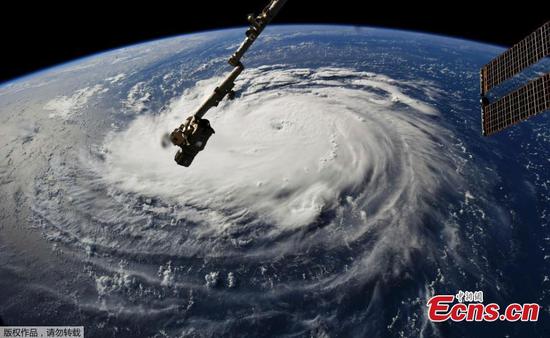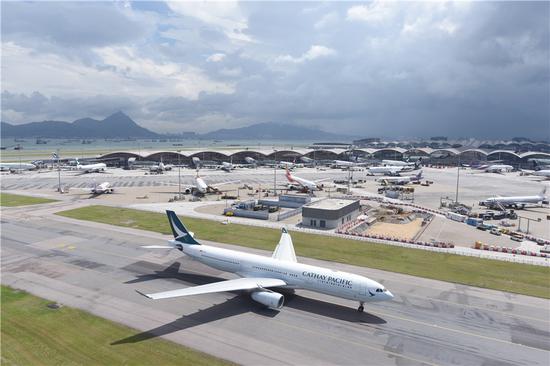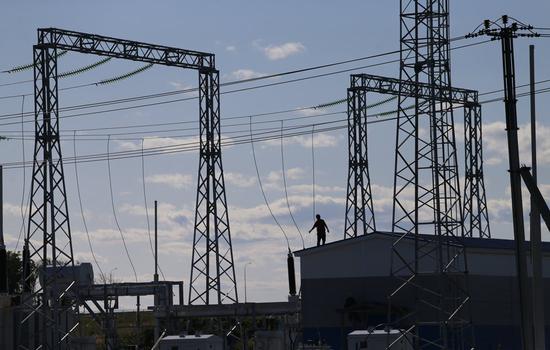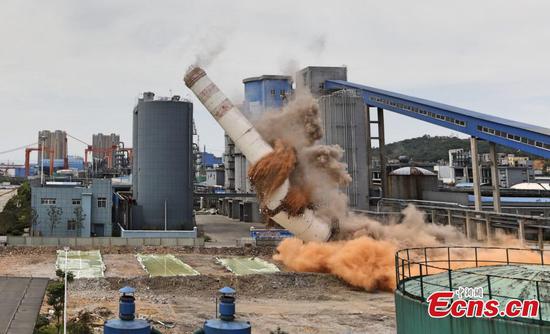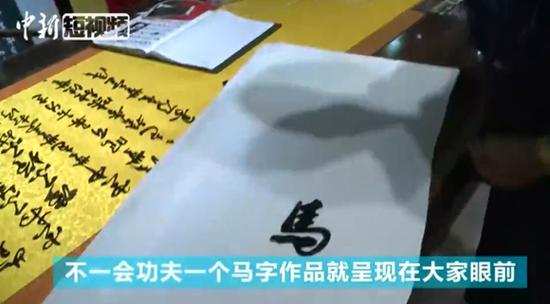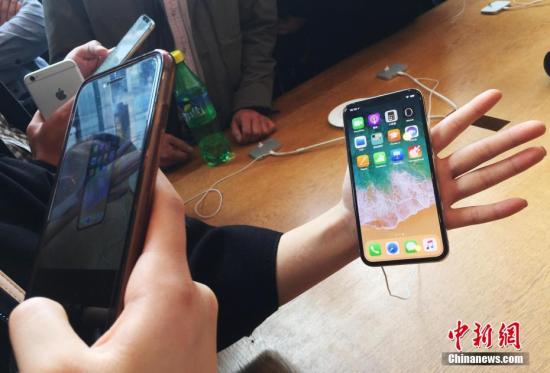
Customers select products at an Apple store in Shanghai. (Photo/China News Service)
U.S. president asks iPhone manufacturer to relocate plants to home country
Apple Inc is likely to suffer greatly from the ongoing China-U.S. trade tension, as experts said moving production of its iPhones from China to the United States could lead to a price rise of as much as 20 percent.
The comments came after U.S. President Donald Trump asked the iPhone maker to relocate its plants to its home turf, in order to avoid his proposed tariff on Chinese imports.
Wamsi Mohan, an analyst at Bank of America Merrill Lynch, said in a research note that Apple may give in to Trump's request by asking its partners to bring some iPhone assembly operations to the U.S., which will lead to the higher prices.
"If Apple shifts 50 percent or 100 percent of iPhone assembly to the U.S., it would increase iPhone prices by 14 percent and 20 percent, respectively," Mohan said.
Currently, most of Apple's manufacturing operations are located in China. And in the quarter ended in June, the U.S. tech giant posted a revenue of $9.55 billion from the country, marking a 19 percent year-on-year growth and representing 18 percent of its total sales.
With such strong ties to China, it was inevitable that Apple would feel the pinch of the mounting trade disputes, especially after Trump said on Friday that he had tariffs planned for an additional $267 billion worth of Chinese goods. That would be on top of $50 billion of goods already hit by 25 percent duties and another $200 billion on which Washington is poised to raise tariffs.
On Monday, Apple fell 1.34 percent to $218.33 on the Nasdaq. CEO Tim Cook is expected to unveil new iPhones and product updates on Wednesday.
Last week, Apple filed a letter with U.S. officials, saying Trump's proposed tariffs on $200 billion worth of imported Chinese goods would affect a wide range of Apple products, including the Apple Watch, AirPods, Mac Minis and Apple Pencils.
Xiang Ligang, CEO of telecoms industry website Cctime, said Apple's dilemma highlights how U.S. aggressive tariff policies will disrupt the global electronics industry chain.
"Apple chose to produce most of its iPhones in China, because this is the most cost-effective choice in terms of labor cost and industrial aggregation effects. That is the result of decades of market playing a decisive role in allocating resources," Xiang said.
But the additional tariffs the U.S. plans to levy on Chinese imports are damaging the industrial layout and in fact, would hurt U.S. companies more than Chinese enterprises, he added.
China, as the world's largest smartphone market, has been contributing to a big share of profits of U.S. tech heavyweights including Apple and Qualcomm Inc in recent years.
"iPhone is the cash cow of Apple. Any increases in cost would either be passed on to customers, resulting in lower sales, or be absorbed by Apple, eroding its bottom line," Xiang said.
On Tuesday, Chuck Robbins, chairman and CEO of Cisco, told CNBC that the U.S. tech company might have to deal with the fallout from U.S.-China trade tensions by passing on higher prices to its customers.









